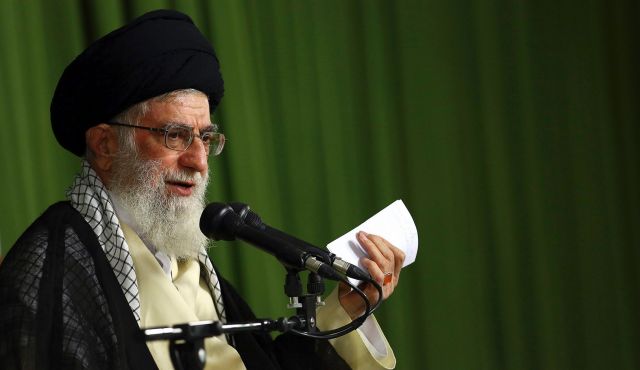Sunni extremism vs. Shiite extremism
Saturday, 8 November 2014 /Abdulrahman al-Rashed /Al Arabiya
The only argument that I have heard in response to what I wrote two days ago about the dangers of extremism – which is still spreading despite the huge magnitude of the chronological events – is why would we seek to contain extremists in our community while there are extremists of all nationalities and religious doctrines out there?
Some were even more pronounced when discussing this issue with me. They told me that overriding Sunni extremism would help countries like Iran, which is supporting its brand of Shiite extremism everywhere!
Firstly, this whole notion is wrong because extremism is dangerous foremost to the community that creates and hosts it. Secondly, those who think that there is an unquestionable state of extremism and that is safer to accept it lest it devastate them – or those who say that maybe it’s better to employ extremism the way Iran and the Syrian regime have used it – will find out the true cost only later.
We paid a heavy price in the past when we tried to ride the monster of rampant extremism; we got burned at the beginning in Afghanistan.
Fire against fire
What about the theory of letting extremism deal with extremism?
“At the end, meddling and twisting religious doctrines – and the acceptance of this by individuals – has proven to be the most dangerous of all weapons used in wars”
Over the past 30 years we have witnessed different experiences in dealing with terrorist groups that committed acts in the name of religion. In the early eighties these groups were Shiite, namely Hezbollah, that instigated political violence in the name of defending Islam and resisting the Zionist enemy.
They were all in fact part of a project to export Khomeini’s Iranian revolution to the rest of the Muslim world. The events in Afghanistan came along and Sunni extremists emerged as the Islamic Unity of Afghanistan, Mujahideen.
It is worth mentioning that many of those arrived after the evacuation of Soviet troops and were involved in the fighting there.
Targeted
Most of the Sunni extremism remained, and is still directed against Sunni communities in Iraq, Syria, Egypt, Saudi Arabia, Libya, Algeria and Morocco, which have been targeted by Sunni terrorist groups such as Al-Qaeda, ISIS, the Nusra Front, Al-Qaeda in the Arabian Peninsula and Bayt al-Maqdis.
Sunni extremism often hurts the Sunni, rather than the Shiite community, unlike Shiite extremist organizations which rarely attack their institutions, communities and people. The reason is that extremist organizations like Lebanon’s Hezbollah and Iraq’s Asaib Ahl al-Haq are linked to governments and abide their policies of extremism management. It is impossible to do the same in Sunni communities because terrorist groups there, like al-Qaeda, are against governments and seek their overthrow.
Therefore, the call to accept these groups under the pretext that the region is bursting with extremism and terrorism led by other communities is an irrelevant argument invented by extremists who then pounced on the society and the country they live in.
Temporary truce
Shiite extremism is witnessing a temporary truce and will take the same direction as the Sunnis because their terrorist factions – such as the ones growing in Iraq – will fight each other and seek to control the Shiite community.
Many Shiite extremist groups currently are raising their voices and threatening Shiites who disagree with them.
In response to the argument stating that “it is not wise to restrain Sunni extremism as long as Iran and its affiliates do not restrain Shiite extremism,” the results say it all.
Most Sunni extremists have attacked their own country and communities, despite their provocative doctrines held against other communities and religions. More than 90 percent of terrorist operations by Sunni groups are directed against Sunni communities in seven countries that have witnessed acts of violence of varying degrees.
At the end, meddling and twisting religious doctrines – and the acceptance of this by individuals – has proven to be the most dangerous of all weapons used in wars as it often has a boomerang effect on the society that has been used as a breeding ground for it.





















